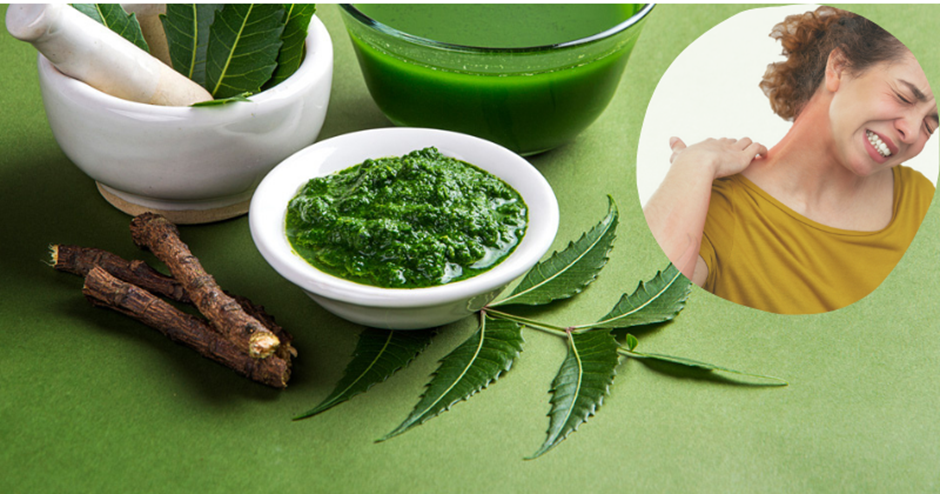Eczema, or atopic dermatitis, is a chronic skin condition characterized by inflamed, itchy, and sometimes painful skin. Conventional treatments often focus on symptom management, but Ayurveda offers a holistic approach that addresses the root cause of eczema. This ancient system of medicine from India emphasizes the balance of the body's energies, or doshas, to promote healing and overall wellness. In this article, we will explore how to treat eczema with Ayurveda, providing a step-by-step guide to achieving natural relief and lasting skin health.

Understanding Eczema in Ayurveda
In Ayurveda, eczema is referred to as "Vicharchika" and is considered a result of imbalances in the doshas—Vata, Pitta, and Kapha. These doshas are the fundamental energies governing all physiological and psychological processes in the body.
Dosha Imbalances and Eczema
- Vata Dosha: Imbalance can lead to dry, flaky skin and intense itching.
- Pitta Dosha: Imbalance results in redness, inflammation, and burning sensations.
- Kapha Dosha: Imbalance causes thickening of the skin, oozing, and increased oiliness.
Ayurvedic Approach to Treating Eczema
Ayurvedic treatment for eczema involves a multi-faceted approach that includes dietary changes, herbal remedies, detoxification therapies, lifestyle modifications, and topical treatments.
- Dietary Modifications
Diet plays a crucial role in balancing the doshas and managing eczema symptoms. Ayurvedic dietary recommendations focus on consuming foods that pacify the aggravated dosha.
Recommended Foods
- Vata-Pacifying Foods: Warm, moist, and nourishing foods such as soups, stews, cooked vegetables, and whole grains.
- Pitta-Pacifying Foods: Cooling, hydrating foods like cucumbers, melons, leafy greens, and coconut water.
- Kapha-Pacifying Foods: Light, dry foods such as barley, millet, apples, and cruciferous vegetables.
Foods to Avoid
Processed and Refined Foods: High in preservatives and artificial ingredients that can aggravate eczema.
Spicy and Oily Foods: Can increase Pitta and Kapha, worsening inflammation and oiliness.
Dairy Products: Can contribute to Kapha imbalance and increase mucus production.
Herbal Remedies
Ayurveda uses specific herbs known for their anti-inflammatory, detoxifying, and healing properties to treat eczema.
Key Herbs for Eczema
- Neem (Azadirachta indica): Known for its antibacterial and anti-inflammatory properties, neem helps in detoxifying the skin.
- Turmeric (Curcuma longa): Contains curcumin, which has potent anti-inflammatory and antioxidant effects.
- Manjistha (Rubia cordifolia): A blood purifier that helps in reducing inflammation and promoting skin healing.
- Aloe Vera: Provides soothing relief and aids in healing skin lesions.
- Detoxification Therapies (Panchakarma)
Panchakarma is a series of Ayurvedic detoxification treatments that cleanse the body of toxins and restore dosha balance, which is essential for managing eczema.
Common Panchakarma Procedures
- Virechana (Purgation Therapy): Helps in eliminating Pitta toxins from the body, reducing inflammation and heat.
- Basti (Enema Therapy): Balances Vata dosha and detoxifies the colon, promoting skin health.
- Raktamokshana (Bloodletting): Purifies the blood and is effective in treating severe inflammatory skin conditions.
Lifestyle Modifications
Ayurveda emphasizes the importance of a balanced lifestyle in maintaining skin health and preventing eczema flare-ups.
Daily Routine (Dinacharya)
Regular Sleep Schedule: Ensuring adequate sleep helps in maintaining hormonal balance and reducing stress.
Moderate Exercise: Activities like yoga and walking improve circulation and help in detoxification.
Hydration: Drinking plenty of water and herbal teas to keep the skin hydrated and flush out toxins.
Topical Treatments
Ayurvedic topical treatments focus on soothing inflammation, moisturizing the skin, and promoting healing.
Recommended Topical Applications
Neem Oil: Applied directly to the skin to reduce inflammation and itching.
Aloe Vera Gel: Provides soothing relief and aids in healing.
Turmeric Paste: A mixture of turmeric powder and water applied to affected areas to reduce inflammation and promote healing.
Coconut Oil: Moisturizes the skin and provides anti-inflammatory benefits.
Mind-Body Practices
Stress management is crucial in the Ayurvedic treatment for eczema, as stress can exacerbate symptoms. Mind-body practices help in reducing stress and promoting overall well-being.
Recommended Practices
Meditation: Regular meditation helps in calming the mind and reducing stress-related eczema flare-ups.
Pranayama (Breathing Exercises): Techniques like Nadi Shodhana (alternate nostril breathing) and Anulom Vilom (alternate nostril breathing) balance the doshas and improve overall health.
Yoga: Poses like Child’s Pose (Balasana), Cat-Cow Pose (Marjaryasana-Bitilasana), and Forward Bend (Uttanasana) help in reducing stress and improving circulation.
Conclusion
Managing eczema with Ayurveda offers a holistic approach that addresses the root cause of the condition, providing natural and effective relief. By balancing the doshas through dietary modifications, herbal remedies, detoxification therapies, lifestyle changes, and mind-body practices, Ayurveda provides a comprehensive strategy for treating eczema. Embracing these ancient principles can lead to healthier skin and overall well-being, offering a sustainable solution for those seeking an alternative to conventional treatments. Ayurvedic treatment for eczema not only alleviates symptoms but also promotes long-term skin health and harmony.


